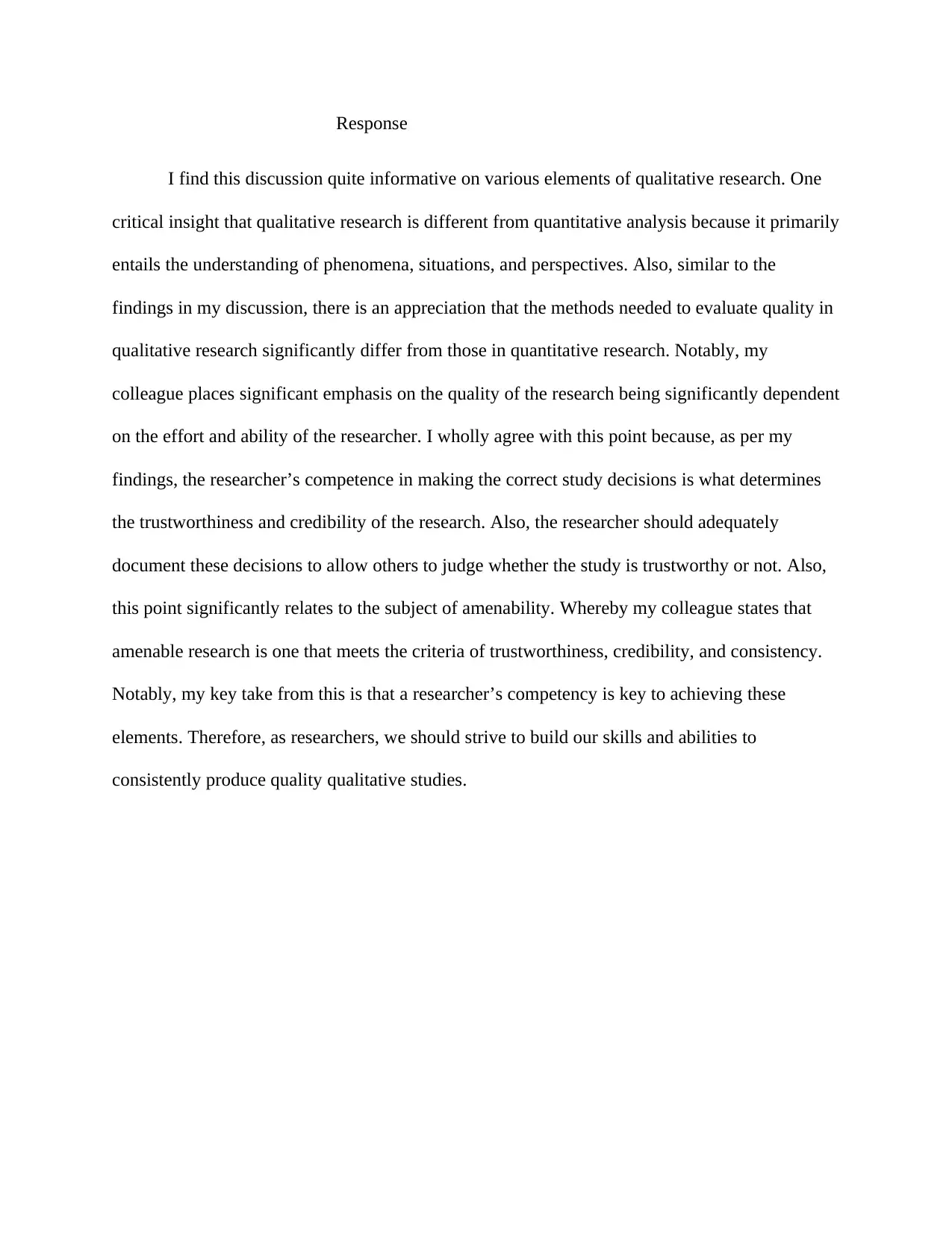Discussion: Designing Qualitative Research
As you recall from earlier weeks, various philosophical orientations hold unique epistemological and ontological assumptions. These assumptions return to the forefront of attention when considering how to evaluate the rigor or quality of various qualitative research designs.
Typically, when speaking of validity, qualitative researchers are referring to research that is credible and trustworthy, i.e., the extent to which one can have confidence in the study’s findings (Lincoln & Guba, 1985). Generalizability, a marker of reliability, is typically not a main purpose of qualitative research because the researcher rarely selects a random sample with a goal to generalize to a population or to other settings and groups. Rather, a qualitative researcher’s goal is often to understand a unique event or a purposively selected group of individuals. Therefore, when speaking of reliability, qualitative researchers are typically referring to research that
![[object Object]](/_next/static/media/star-bottom.7253800d.svg)
![[object Object]](/_next/static/media/star-bottom.7253800d.svg)
